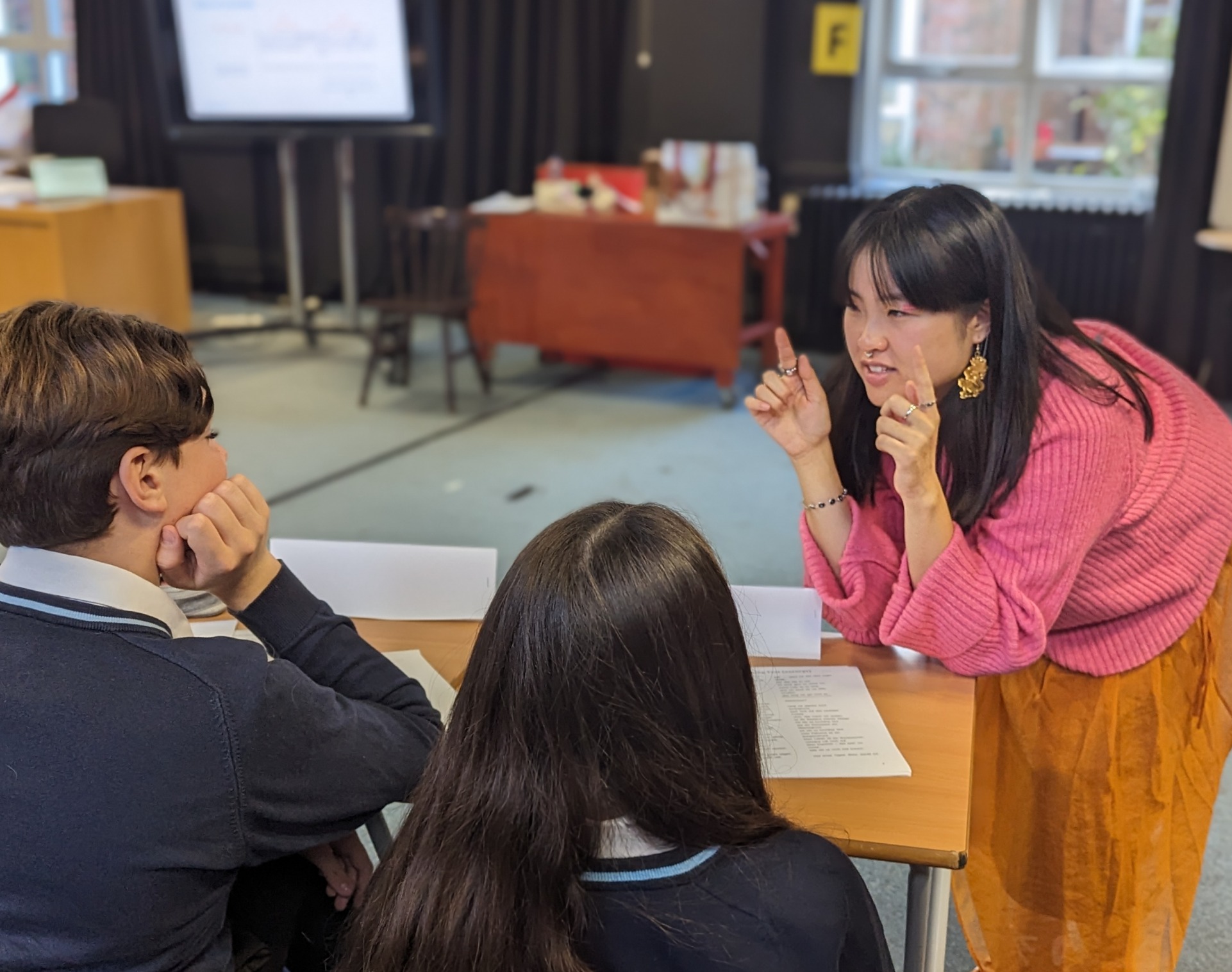
By Sophie Lau
Julia Engelmann is an incredible actor, poet, and singer. Her work delves into a lot of the preoccupations of living in the modern world and uses accessible vocabulary that can be understood by German learners of all levels. This is one of the reasons I’m so drawn to her poetry when developing workshops, but on a personal level, she’s one of the first foreign-language poets I discovered in my teen years and one of my own biggest poetic inspirations. When I was trying to find my own writing voice, I realised what I really wanted to do was play with language while tackling relatable themes, and so for many years, my own creative output was poetic at its core. Nowadays, running workshops with Julia’s poetry, it feels like I’ve come full circle, sharing poetry that inspired me so greatly with so many students and hopefully inspiring them in turn.
One of the most exciting aspects of learning languages is being able to engage with authentic cultural materials, whether those are films, TV shows, music, podcasts, literature, or anything else. This is an area that isn’t explored much within the school curriculum, and so any opportunity for students to work with these is hugely valuable, both for sparking enthusiasm for language learning and for putting learned language skills into practice.
UK charity the Stephen Spender Trust has blazed a trail in this area over the past decade, finding innovative ways to bring literature to young people – both in the languages they are learning at school and in those they might speak at home and with their families. As an SST Associate, I often design and deliver creative translation workshops in schools, and last month I spent a week running workshops on a poem by Julia Engelmann. ‘One Day’ is at core about seizing the day and living life to the full. This poem was originally performed at a poetry slam in 2013 and went completely viral. It now has over 14 million views on YouTube.
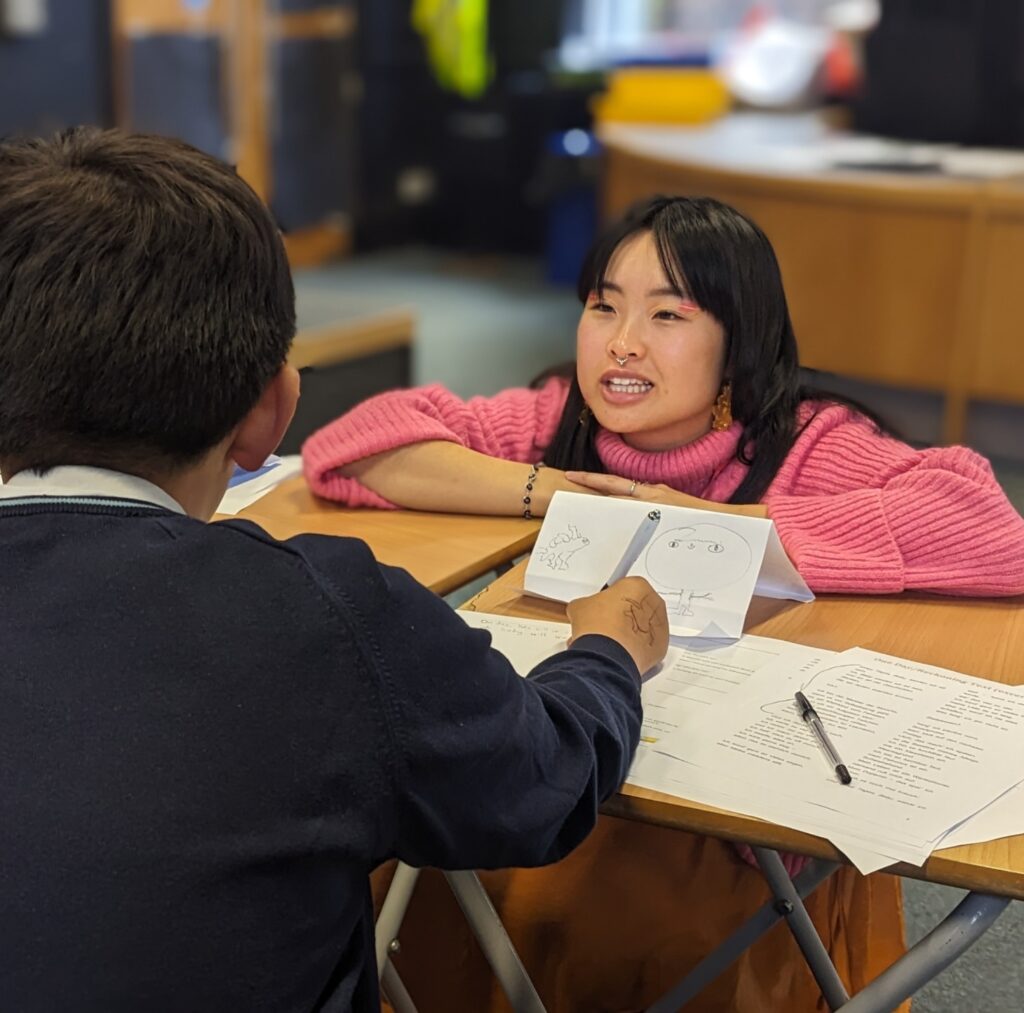
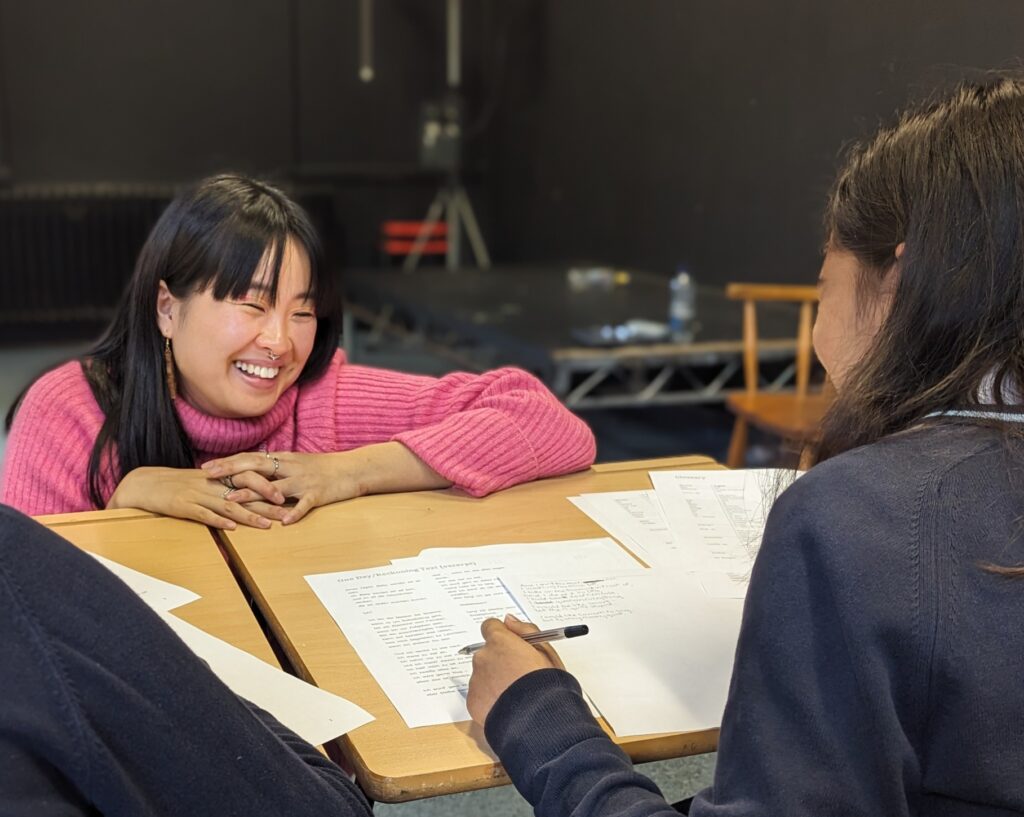
These workshops were organised by the Goethe-Institut London as part of their new project GIMAGINE. The general structure I use follows the Stephen Spender Trust model for creative translation, which offers the students a scaffolded way to engage with unfamiliar language. We start with a decoding exercise where students are given an image board that explores the main themes. They then listen to an audio recording of the poem and try to deduce the mood and tone, as well as pick out any discernible language techniques or recognisable vocabulary. They work in groups to translate small sections of the poem, starting with a literal translation before polishing it to sound more poetic, whether that’s through syntactical or artistic choices. There is then time devoted to creative writing where students can explore anything that arises from working with the poem. During the week of workshops, students produced work ranging from a bilingual rap on life as a “Teeny” to a collage of their internal “Kopfkino”.
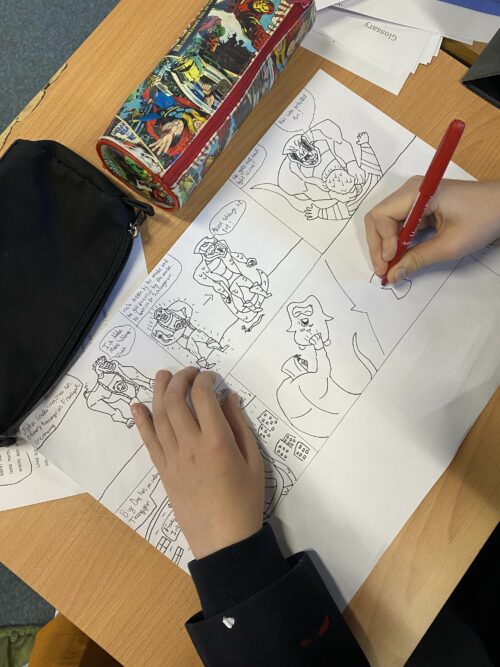
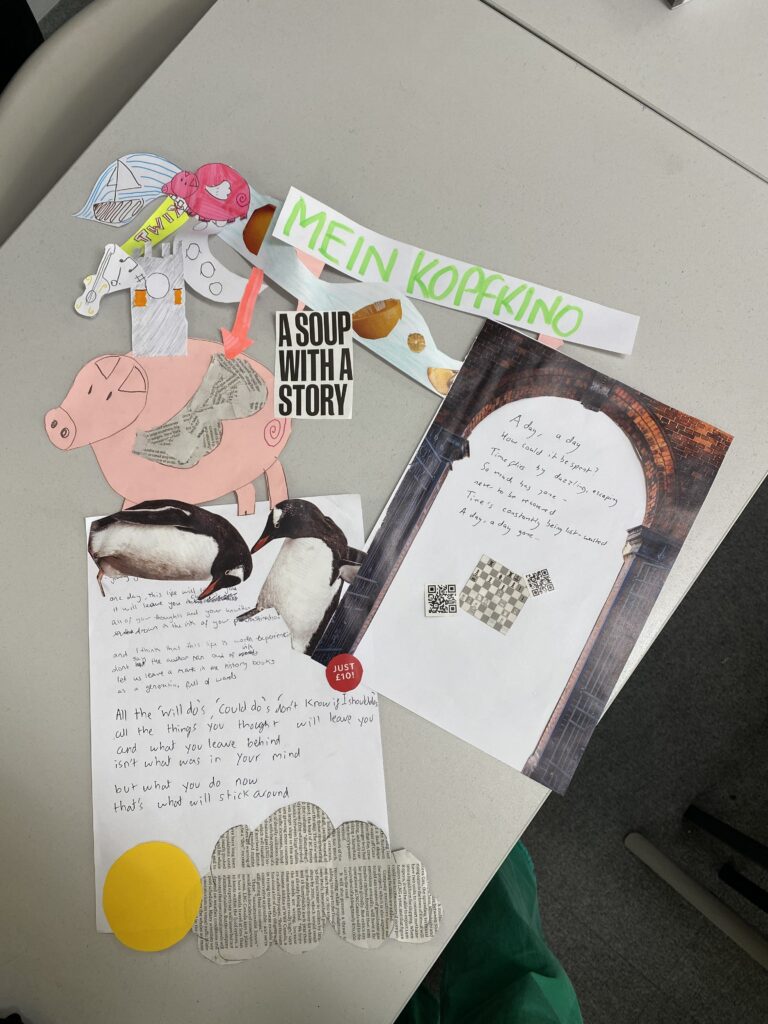
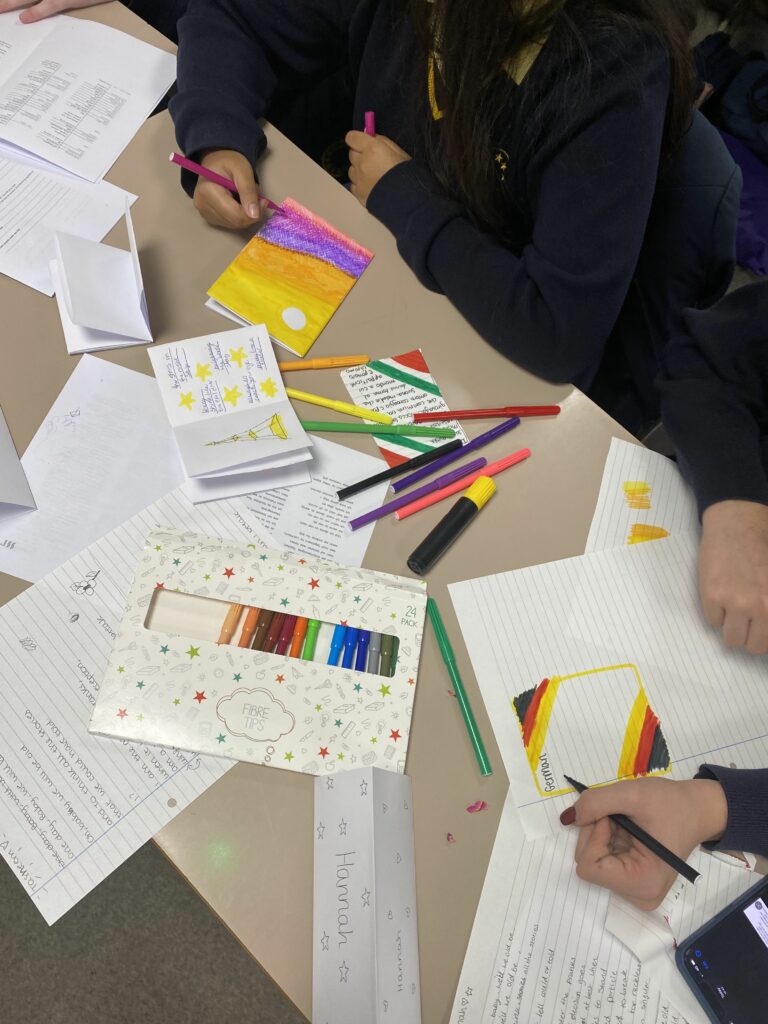
For me, the value of these workshops lies in giving students the time to be playful with languages. Despite these being German workshops, students aren’t limited to only using German and English in their creative writing, and so for a lot of them, it is also an opportunity for them to engage with their heritage languages in a new way. As a heritage language speaker myself, these workshops are also a time when students can ask for advice on how to improve their heritage language skills, as well as explore their often complex feelings regarding the communication barriers that exist between them and their families. These workshops provide students with a much-needed space to be creative but also think more introspectively about their relationship with the languages in their lives.